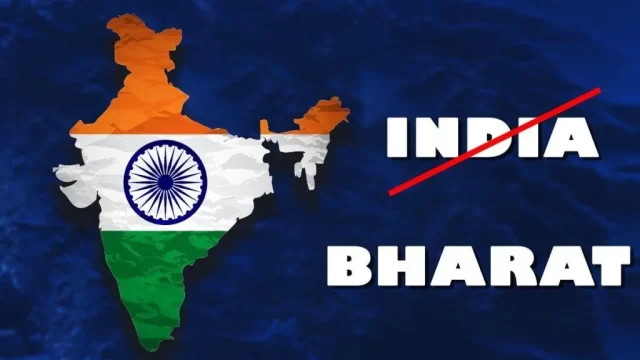The suggestion on renaming India as Bharat was made by the focus group on social sciences, which was headed by historian CI Isaac.
One of the 25 focus groups set up by the National Council of Educational Research and Training (NCERT) two years ago to provide inputs that would then feed into the new National Curriculum Framework (NCF) has suggested that ‘India’ should be renamed as ‘Bharat’ in social science textbooks.
However, the final NCF document that was released by the Education Ministry on August 23, which was finalised after considering inputs from all 25 focus groups, makes no mention of introducing India as ‘Bharat’ in school textbooks. The NCF is a policy document that provides guidelines on how school education should be conducted in classrooms.
The suggestion on renaming India as Bharat was made by the focus group on social sciences, which was headed by historian CI Isaac. Speaking to us, Isaac confirmed that the seven-member panel chaired by him had indeed proposed the name change. “We are hoping it will be implemented from the next academic year, but it all depends on NCERT,” he said.
Based on the new NCF released in August, the NCERT has now initiated the process of drafting new textbooks. It’s unclear whether the inputs of the 25 focus groups meant for drafting the NCF will be considered during textbook preparation. The NCERT released a statement on Wednesday, saying it was “too premature” to comment on the issue as it was still in the process of constituting curricular area groups responsible for drafting different textbooks.
“NCERT states that since the development of new syllabus and textbooks is in process, and for that purpose, various Curricular Area Groups of domain experts are being notified by the NCERT. So, it is too premature to comment on the news being reported in the media on this issue,” the Council shared on ‘X’ (formerly known as Twitter).
The recent push for specifically referring to India as Bharat first came to light when the government sent out a G20 Summit dinner invitation from the “President of Bharat,” as opposed to “President of India,” which has been the norm for official dinner invites. This triggered a political row, with many Opposition leaders questioning the move.
To date, as far as drafting new textbooks are concerned, the NCERT has only set up a 19-member committee responsible for aligning “school syllabus, textbooks, teaching and learning materials” with the NCF for classes 3 to 12. Fields medalist Manjul Bhargava, Chairman of the Economic Advisory Council to PM Bibek Debroy, founding member of the RSS-affiliated Samskrita Bharati Chamu Krishna Shastry, philanthropist Sudha Murty, and singer Shankar Mahadevan are among the members.
Isaac also added that the focus group on social science had proposed that Indian victories should be a significant part of the curriculum. “Currently, there is no mention of post-independence history in NCERT books, so we have suggested that historical events that took place from 1947 until now should also be introduced, and the number of hours allocated for pre-independence can be reduced,” he said.
The Committee has also suggested replacing ‘ancient history’ with ‘classical period of Indian history.’ He also added that the Committee has agreed to add more about the Indian Knowledge System in the curriculum to teach more about achievements, history, and culture of the country.
Reacting to the news of one of the focus groups’ suggestions on India and Bharat, leaders of opposition parties on Wednesday alleged that the ruling BJP wanted to change history and was taking such “desperate steps” fearing its defeat at the hands of the opposition bloc INDIA.









